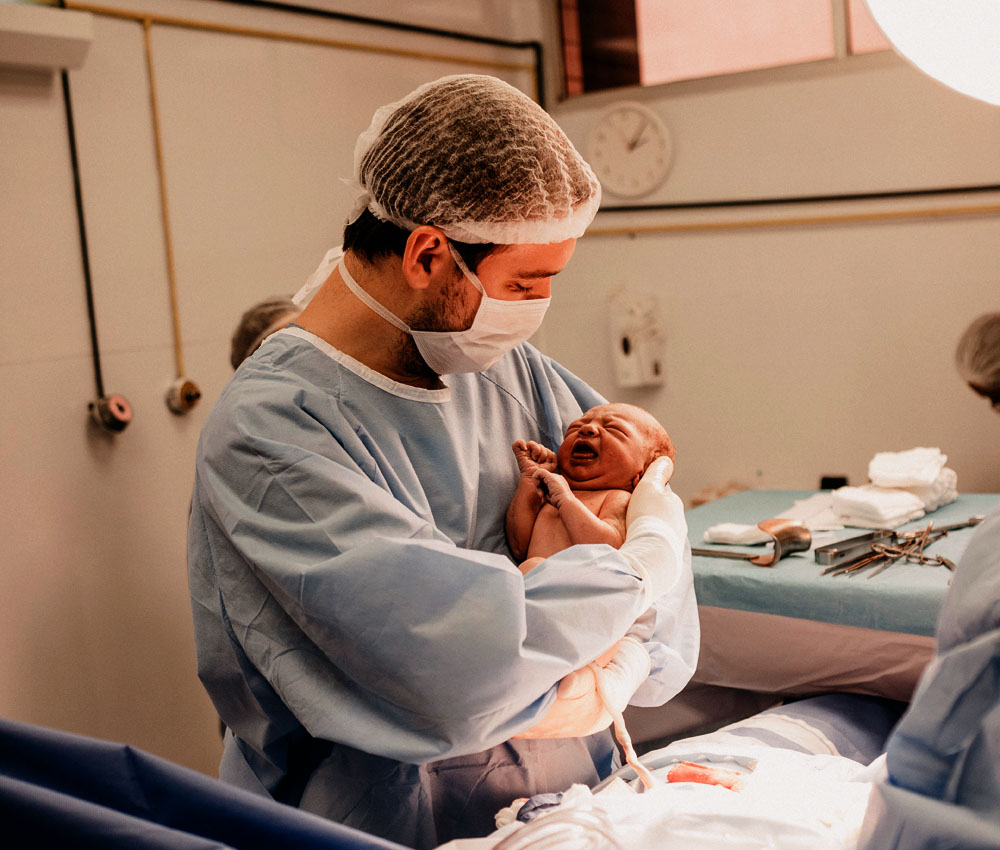
The bodies of infants and children are fragile in nature. When they have health problems that require surgery, it is the job of the paediatric surgeon to provide them with specialised care. Paediatric surgeons attend to a wide variety of surgical procedures for newborns and teens in their late adolescence. As a parent, it’s crucial to know which conditions require the attention of a paediatric surgeon so you can provide them with the best care possible.

Here is a list of the most common surgeries performed by paediatric surgeons in Newcastle and around the world.
- Appendicitis
Appendicitis is a condition that is characterised by an inflamed or infected appendix. The paediatric surgeon removes the appendix either through a traditional surgical procedure or through laparoscopy (which is an advanced, minimally invasive surgery method).
- Biliary atresia
Biliary atresia is a condition in which the dark-green to yellowish fluid produced by the liver doesn’t get flushed out due to a congenital defect. Infants and children with biliary atresia are diagnosed through a liver biopsy, ultrasound, or nuclear medicine. The bile ducts are reconstructed through surgery before being reattached to the liver.
- Cancer
Paediatric surgeons work closely with their colleagues in the oncology department to perform cancer surgery of all types. Some examples of cancer surgery done by paediatric surgeons are:
- Hepatoblastoma – an uncommon malignant cancer in infants and children
- Neuroblastoma – a type of cancer that develops from immature nerve cells.
- Wilms tumour – a rare kidney cancer in children.
- Portacath – a small implant device that enables easy access to a patient’s veins for chemotherapy.
- Congenital cystic adenomatoid malformation
A pre-birth condition characterised by a benign lung lesion that appears a mass or cyst in the infant’s chest. It’s made up of abnormally growing lung tissue that doesn’t function properly. The abnormal tissue is removed via surgery after giving birth to the baby.
- Esophageal atresia and tracheoesophageal fistula
Esophageal atresia and tracheoesophageal fistula are pre-birth conditions in which the infant’s esophagus and trachea are malformed during their development. This requires closing the fistula via surgery and reconnecting the tubes to the right organs immediately after the child’s birth.
- Gallbladder issues
Paediatric surgeons address gallbladder issues in infants and children caused by a viral disease or other causes. In some cases, the gallbladder may be removed through a traditional surgical procedure or through laparoscopy.
- Gastroesophageal reflux (GERD)
Gastroesophageal reflux (acid reflux or GERD) is a condition in which stomach acid and food make their way up the esophagus. The end of the esophagus is tightened to allow food to travel to the stomach but prevented from traveling back up to the esophagus.
- Gastroschisis
A congenital defect in which the infant’s stomach or intestines protrude out of their body due to an abdominal opening. Surgery is performed immediately after giving birth to place the protruding organs back into the body and close the opening if possible.
- Hernia
A condition that’s characterised by an unclosed hole in the groin after birth. Intestines and fluids may pass through this opening if left untreated. Paediatric surgeons perform hernia repair surgery to put back the herniated tissue to its correct location. The opening in the muscle wall is then repaired or closed.
- Hirschsprung’s disease
A congenital defect in which certain nerve cells (ganglions) are absent in an infant’s bowel. Surgery is performed to remove a part or all of the colon to promote normal bowel movement.
- Necrotizing enterocolitis
Necrotizing enterocolitis is a gastrointestinal disease caused by an inflammation or infection that ultimately destroys the wall of the child’s bowel. This condition is commonly seen in premature babies and diagnosis is done after an abnormal gas pattern has been found in the child’s x-ray. A surgical procedure is done to remove the infected areas of the intestine.
- Obesity
Extremely overweight children are at a higher risk for numerous health problems as opposed to normal weight children. A paediatric surgeon may perform bariatric surgery (a surgical procedure that narrows down the esophagus with the use of an adjustable balloon) to achieve weight loss. Sleeve gastrectomy is another weight-loss surgery that removes a portion of the stomach to make it smaller.
- Pectus carinatum
A congenital defect that is commonly referred to as ‘bowel’s chest’ due to the abnormal protrusion of the child’s ribs and sternum. An incision is made in the middle chest to remove the anterior cartilage in the front. From there, stainless steel struts are implanted across the anterior chest to provide support to the breastbone and elevate it.
- Reproductive disorders
Any reproductive issues that affect a child’s organs may require the attention of a paediatric surgeon. Most surgeries are performed to restore normal ovaries, tubes, and uterus in infants.
- Short bowel syndrome
Short bowel syndrome is a condition that’s characterised by a lack of functional small intestine. This causes malabsorption of nutrients from foods consumed as well as diarrhea. Children and infants with short bowel syndrome are diagnosed through stool tests, x-rays, and ultrasounds. The procedure is done by transplanting a portion of the small intestine from a donor to allow the child’s body to better absorb the nutrients.
Paediatric surgeons are trained experts at handling surgical procedures for very young patients. If you find that your child has any of these medical conditions, make sure to seek advice from a paediatrician as soon as possible.
